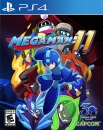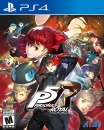TheMisterManGuy on 17 October 2023
The Nintendo Switch as we know is a hybrid home/mobile gaming system that you can play either docked to a TV, or un-docked in Handheld or Tabletop modes. At nearly 130 million units sold worldwide, it continues Nintendo's long standing strength and dominance in dedicated portable gaming.
But prior to the Switch, I always had the feeling that for the longest time in the eyes of gamers, developers, and even Nintendo themselves to a degree, that their Handhelds were Nintendo's primary market and business, while their home consoles were seen as these niche boutique platforms designed primarily for the big new Nintendo games with some third party support.
This was especially prevalent with the Nintendo 64 through Nintendo GameCube eras, where Nintendo alienated a lot of third parties with their decision to use cartridges for the N64, which left it with just Nintendo's own games, and a handful of mostly western third parties supporting it. The Game Boy however, saw a massive resurgence in popularity with the release of Pokemon, and combined with the Game Boy Color, saw revived developer interest in the aging brand, with franchises like Street Fighter, Metal Gear Solid, and Resident Evil, which were largely absent on N64, get Game Boy Color entries. Nintendo even started the trend of bringing some of their older console titles to handhelds with Super Mario Bros. Deluxe and Donkey Kong Country.
Then in 2001, Nintendo entered the 6th generation with the Game Boy Advance first. Its 32-Bit hardware and attractive price made it an instant hit at launch. The GBA also started the trend of Nintendo handhelds lifting features from their consoles. In this case, the console's new link cable allowed up to 4 player multiplayer on the go for the first time, a feature first introduced on N64. This allowed series like Mario Kart, Mario Party and F-Zero to finally make it to portable form in a viable fashion. Nintendo also began to dive even further into their console backlog by porting its SNES titles over including the full DKC trilogy, Super Mario World and Yoshi's Island, and A Link to the Past. Meanwhile, Nintendo continued to alienate third parties with the Nintendo GameCube, by utilizing a proprietary mini-disc format. While the console saw some improvement with support later on, it was still primarily seen as a Nintendo box, while GBA was perceived as an all-round gaming platform with great third party support, and great first party, including the still unstoppable juggernaut Pokemon.
I think Nintendo themselves thought this to an extent as well. They placed a big focus on connecting GBA to GameCube early on in the system's life. I feel like this was primarily a way to get GBA owners interested in the company's AAA console offerings on GCN since the GBA was THE handheld to own, especially among one of Nintendo's key demographics, children and youths.
In other-words, Nintendo for the longest time, treated their handhelds as ubiquitous lifestyle products, while their consoles were treated like niche, high-end showrooms for their latest games and technology that the handhelds would quickly adopt.
But the Switch has finally tried to marry those two dichotomys, a solid mobile gaming platform with tons of third party support, while also having the latest AAA Nintendo games. I think it became obvious by the time we got to Wii U that Nintendo needed to put an end to its home consoles being seen as "Nintendo boxes" and so they decided to solve that problem... by making their next console double as a handheld, which further tells me that the company in a way, always saw its portable gaming business as its primary market.
But prior to the Switch, I always had the feeling that for the longest time in the eyes of gamers, developers, and even Nintendo themselves to a degree, that their Handhelds were Nintendo's primary market and business, while their home consoles were seen as these niche boutique platforms designed primarily for the big new Nintendo games with some third party support.
This was especially prevalent with the Nintendo 64 through Nintendo GameCube eras, where Nintendo alienated a lot of third parties with their decision to use cartridges for the N64, which left it with just Nintendo's own games, and a handful of mostly western third parties supporting it. The Game Boy however, saw a massive resurgence in popularity with the release of Pokemon, and combined with the Game Boy Color, saw revived developer interest in the aging brand, with franchises like Street Fighter, Metal Gear Solid, and Resident Evil, which were largely absent on N64, get Game Boy Color entries. Nintendo even started the trend of bringing some of their older console titles to handhelds with Super Mario Bros. Deluxe and Donkey Kong Country.
Then in 2001, Nintendo entered the 6th generation with the Game Boy Advance first. Its 32-Bit hardware and attractive price made it an instant hit at launch. The GBA also started the trend of Nintendo handhelds lifting features from their consoles. In this case, the console's new link cable allowed up to 4 player multiplayer on the go for the first time, a feature first introduced on N64. This allowed series like Mario Kart, Mario Party and F-Zero to finally make it to portable form in a viable fashion. Nintendo also began to dive even further into their console backlog by porting its SNES titles over including the full DKC trilogy, Super Mario World and Yoshi's Island, and A Link to the Past. Meanwhile, Nintendo continued to alienate third parties with the Nintendo GameCube, by utilizing a proprietary mini-disc format. While the console saw some improvement with support later on, it was still primarily seen as a Nintendo box, while GBA was perceived as an all-round gaming platform with great third party support, and great first party, including the still unstoppable juggernaut Pokemon.
I think Nintendo themselves thought this to an extent as well. They placed a big focus on connecting GBA to GameCube early on in the system's life. I feel like this was primarily a way to get GBA owners interested in the company's AAA console offerings on GCN since the GBA was THE handheld to own, especially among one of Nintendo's key demographics, children and youths.
In other-words, Nintendo for the longest time, treated their handhelds as ubiquitous lifestyle products, while their consoles were treated like niche, high-end showrooms for their latest games and technology that the handhelds would quickly adopt.
But the Switch has finally tried to marry those two dichotomys, a solid mobile gaming platform with tons of third party support, while also having the latest AAA Nintendo games. I think it became obvious by the time we got to Wii U that Nintendo needed to put an end to its home consoles being seen as "Nintendo boxes" and so they decided to solve that problem... by making their next console double as a handheld, which further tells me that the company in a way, always saw its portable gaming business as its primary market.













































